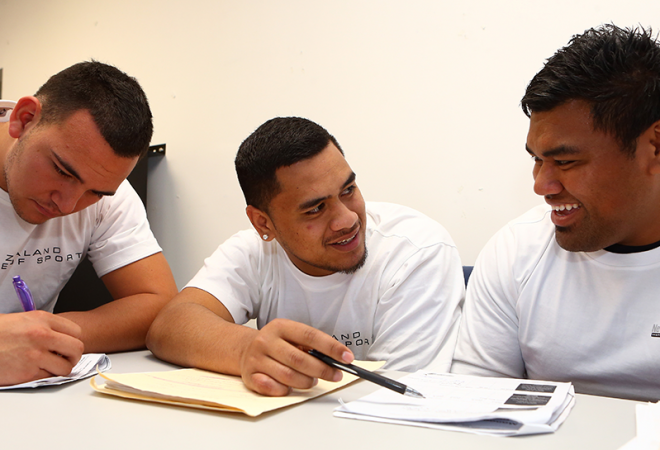
Change Strategies to enhance Pasifika Student Success at three Canterbury tertiary institutions
Status
Completed: 2 August 2015
Project Details
A research project to identify and understand more fully the change strategies required to enhance effective engagement and support for Pasifika students within three tertiary institutions in Canterbury – Lincoln University, Christchurch Polytechnic Institute of Technology and the University of Canterbury.
This Regional Hub Funded project contributed to the National Project Fund research – Implementing and evaluating the Pasifika Success Toolkit with Canterbury Tertiary Organisations
Aims:
The aims of the research included:
- gaining a deeper understanding of what success meant to Pasifika students
- identifying good practices to improve participation and success rates for Pasifika at the tertiary level.
Methodology:
The mixed method (qualitative and quantitative) study featured:
- two main questions: how do we know that what we are doing to support Pasifika student success is working and what does success mean to Pasifika students?
- 8 focus groups with 55 Pasifika student participants from three institutions
- five years of support programme participation, performance and demographic data.
Status
Funding
$44,660.00 (excl GST)
Key Findings
- Responsibilities and commitment to family and communities were considered significant factors in Pasifika students’ perceptions of success.
- Students were able to identify and acknowledge effective support factors inside and outside the institutions at which they were studying.
- A number of student ideas emerged from their own experiences and their need to see changes for future students.
- It was also identified that participation in a Pasifika learner support programme such as supplementary tutoring and mentoring had a significant effect on improving the course pass rate for Pasifika students.
- A predictive model was developed that estimated significant gains in pass rates for Pasifika who participated in support programmes, particularly for Pasifika students from decile 1 schools, those doing 100-level courses and those 20 years and over.
Key Recommendations
Transform teaching pedagogy and curriculum design | Enhance relevance and inclusive delivery for Pasifika learners as a top priority.
Integrate Pasifika knowledge | Identify opportunities to integrate Pasifika knowledge and contexts throughout course offerings.
Explore new teaching approaches | Explore and implement pedagogical shifts in teaching approaches using relevant cultural contexts.
Target Pasifika learner support | Provide targeted learner support that proactively contacts students to provide guidance and support.
Increase Pasifika community connectedness | Explore how to increase Pasifika community connectedness within tertiary education organisations, including the hosting of more Pasifika events.
Provide supplementary tutoring and mentoring | Provide more programmes for Pasifika and ensure there is ongoing monitoring and evaluation of those programmes.
Increase Pasifika student reporting | Report more frequently to provide tertiary education organisations with reliable data to underpin targeted effective practices for Pasifika success.
Increase meeting spaces for Pasifika | Ensure there are more informal meeting spaces for Pasifika, where advocacy can take place and where there is visual imagery and artwork reflecting a Pasifika presence.
Develop a Pasifika Success Toolkit | In the future, develop a toolkit to support self-review and engage participating Canterbury tertiary institutions in ongoing reflection on how they meet the needs of Pasifika learners and their communities.
The final report for this project containing the background, methodology and findings of the research. This report also includes a literature review which discusses current discourse in related areas.
- 20 August 2015